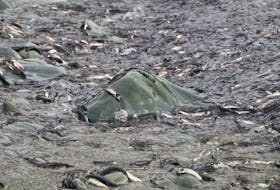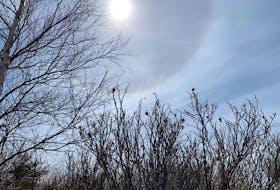A group of researchers — Myron King, Dr. Daniel Altdorff, Prof. Lakshman Galagedara, led by Prof. Adrian Unc — from Grenfell Campus, Memorial University of Newfoundland, estimated the expansion of the agricultural areas in the boreal regions of the world by the end of the 21st Century under changing climate.
They used seven global climate prediction models to predict the northward shift of conditions favourable to crop growing based on temperature units called Growing Degree Days (GDD). Moreover, they also used climate water balance based on the variability of potential evapotranspiration and rainfall during the growing season (May to October).
“High latitudinal regions in the world, including northern Canada, may benefit from the expansion in agricultural areas suitable for small cereals due to climate change,” they said.
Researchers found that by 2099 roughly 76 per cent of the global boreal regions might reach crop feasible climatic conditions for small cereals, compared to the current 32 per cent. In Canada up to 73 per cent of the boreal region will have a climate that may allow agriculture, an increase from the current 26.3 per cent, which equals an additional area of 3.1 million square kilometres. During this expansion, the leading edge of the feasible growing areas may shift northwards to as far as 1,200 km north from the current position. However, according to the researchers, these potential new agricultural lands will likely be affected by changes on the availability of water. They show that most of the newly gained areas would be associated with highly seasonal and monthly variations in climatic water balances. For example, Atlantic and Pacific Canada will receive more water, while the continental Canada (Central Canada) may suffer from water deficits over the growing season.
We must nevertheless not forget that any land-use conversion may create issues with accelerated greenhouse gases production, changes in biodiversity, and the quality of surface waters. In any case any decision for expansions of agriculture in the North will depend on social and political circumstances, local food security concerns and must integrate assessments of the climatic and ecological impacts. The researchers pointed out that focused and accelerated interdisciplinary research should be conducted to allow for an all-around sustainable expansion of agriculture in the North.
Such research must integrate climate science with plant, soil, water and ecological sciences along with socio-economic research in order to recognize opportunities, address the challenges, and minimize and manage undesirable consequences of agriculture at higher latitudes.
The paper was published in SCIENTIFIC REPORTS of Nature Publishing Company and is available at https://www.nature.com/articles/s41598-018-26321-8#Sec5
Dr. Adrian Unc is the leader of the research team from Grenfell Campus.









